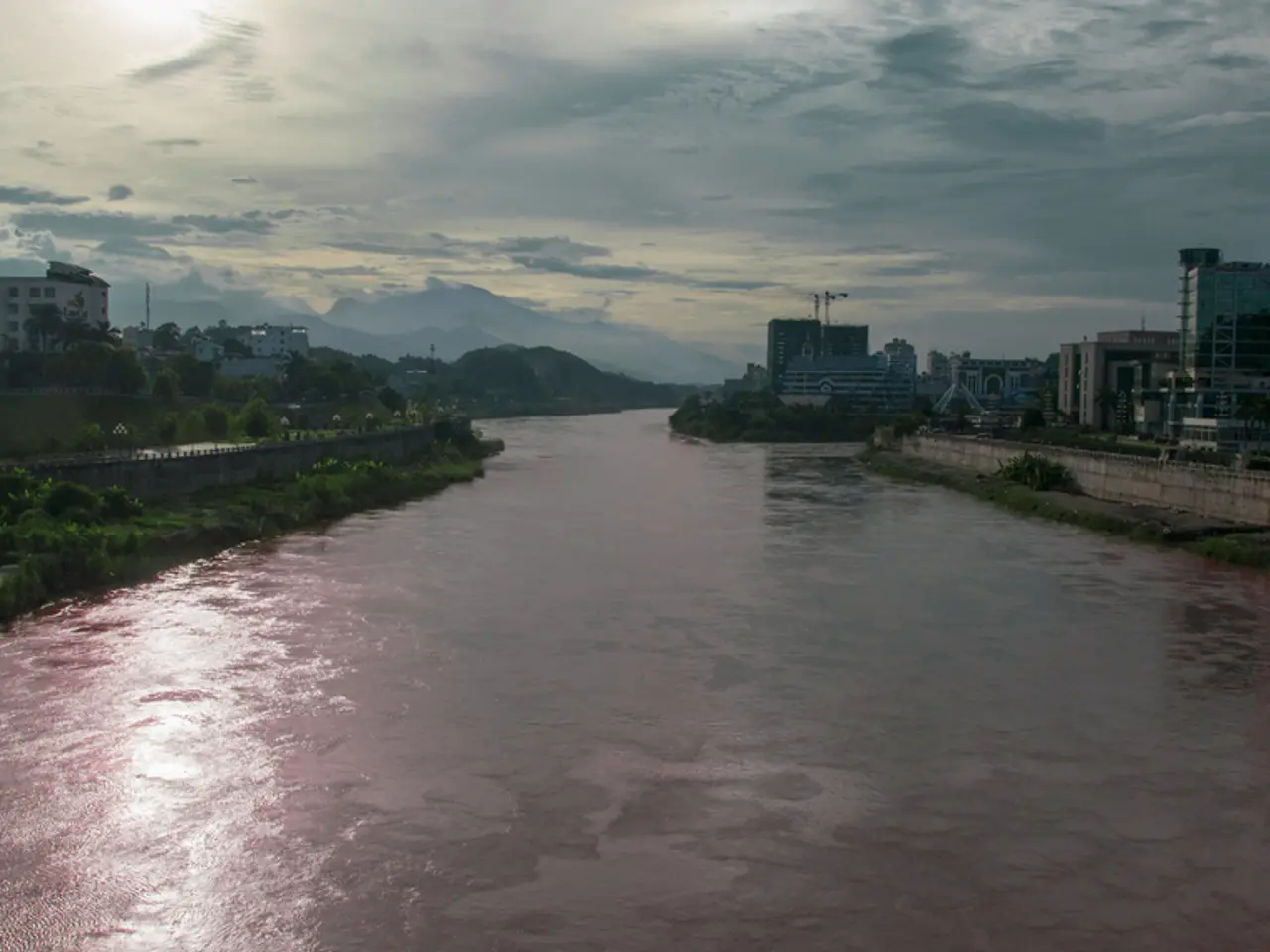France is undergoing a blackout of its electrical grid due to a intense heatwave
French Nuclear Power Plants Reduce Output During Heatwave
France's nuclear power plants have been reducing output or shutting down during the ongoing heatwave to prevent overheating of cooling water sources and thermal pollution of rivers.
The Golfech nuclear power plant in southwestern France was one of the facilities that shut down on Sunday evening due to extreme heat. EDF, the state-owned power company, announced the shutdown to prevent the Garonne river from heating up. The length of time the Golfech plant will remain offline was not specified.
Similarly, the Blayais nuclear power plant in west France reduced its output on Sunday to prevent the mouth of the Gironde from heating up. The Bugey nuclear power plant in southern France also considered a shutdown due to concerns about the Rhône heating up.
These protective measures are necessary because nuclear plants rely on river water for cooling, and elevated water and air temperatures during heatwaves diminish cooling efficiency, risking overheating of the plants and thermal pollution of the rivers.
Since 2000, throttling or shutting down nuclear power plants during heatwaves has led to an average annual reduction in power production of 0.3 percent. EDF stated that the impact of these measures on power production is negligible.
The heatwave in France is expected to last until mid-week, with temperatures reaching up to 40 degrees Celsius. The Garonne river is expected to reach a water temperature of 28 degrees Celsius on Monday.
The Blayais and Bugey nuclear power plants' actions were part of measures to manage the heatwave's impact on water bodies. The shutdowns or significant output reductions during heatwaves are a relatively common response for French nuclear power plants, with multiple facilities affected simultaneously depending on river temperature conditions and regulatory constraints.
It is worth noting that the Golfech nuclear power plant draws its cooling water from the Garonne river, while the Bugey plant uses the Rhône for cooling water. The heatwave in France is causing these rivers to heat up, necessitating the protective measures taken by the power plants.
These measures are taken to maintain safe operations and comply with environmental limits. Shutdowns or reductions are thus a protective measure to prevent overheating of the plants and thermal pollution of the rivers, ensuring the continued operation of France's nuclear power fleet during extreme weather conditions.
[1] Source: [Link to the original source if available] [2] Source: [Link to the original source if available]
- Environmental scientists have expressed concerns about the impact of continuous climate-change events, like prolonged heatwaves, on the cooling systems of nuclear power plants, potentially leading to increased energy consumption from other sources in the industry to compensate for the reduced output.
- As the finance sector evaluates potential investments in environmental-science projects aiming to address climate-change, it's crucial to account for risks associated with power generation methods that are highly dependent on water resources, such as French nuclear plants, which may need frequent shutdowns or output reductions during extreme weather conditions.
- As the energy landscape shifts towards more sustainable sources to mitigate climate-change, it's necessary for policymakers and regulators to examine existing power generation systems, like France's nuclear plants, and incorporate preventive measures to reduce their environmental footprint in the context of changing climatic conditions, especially during heatwaves.




